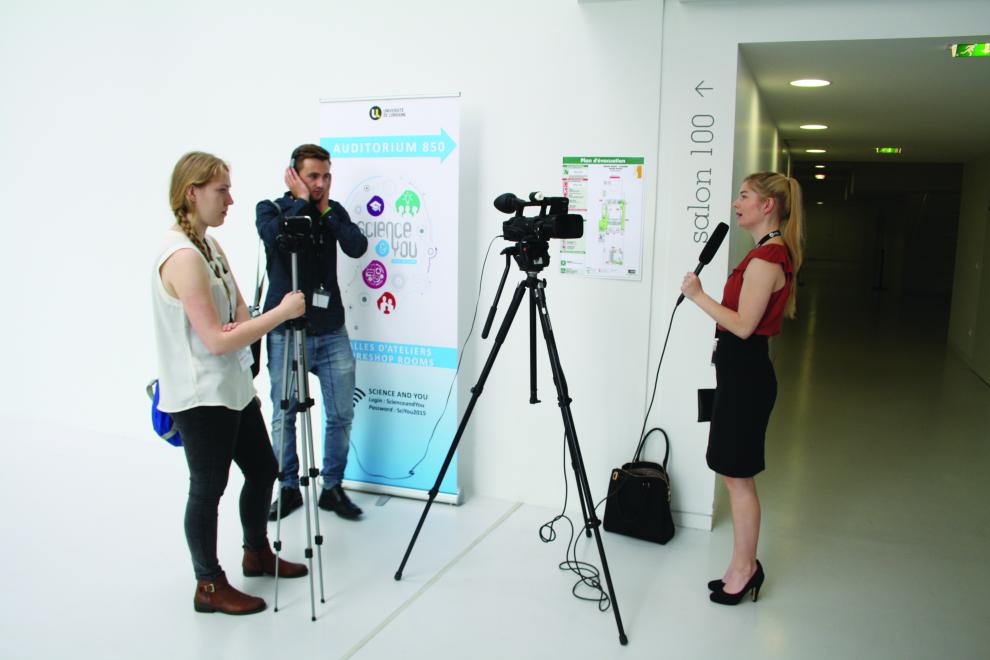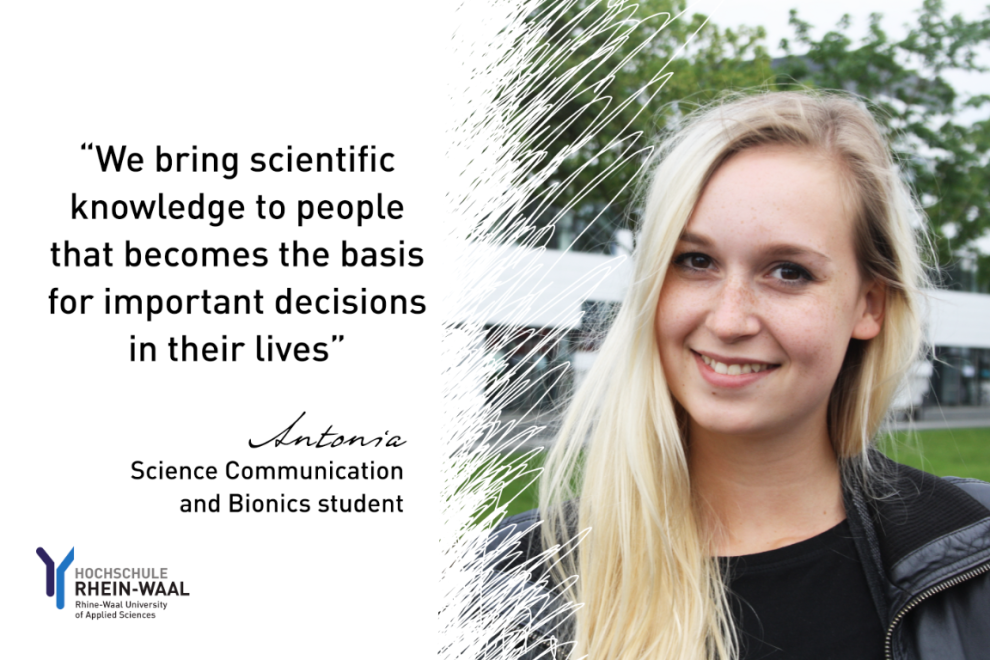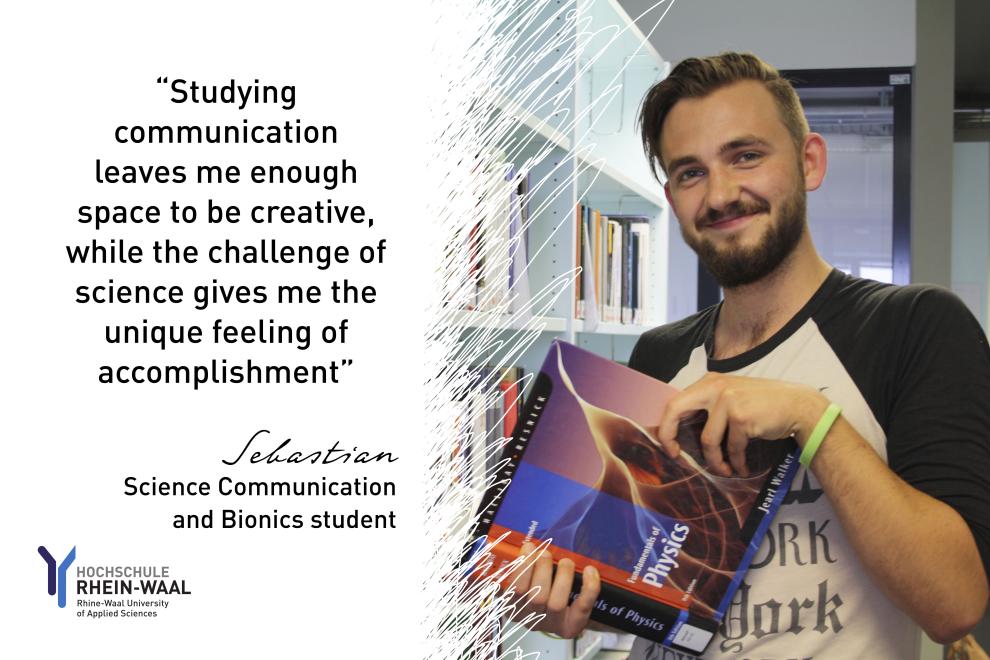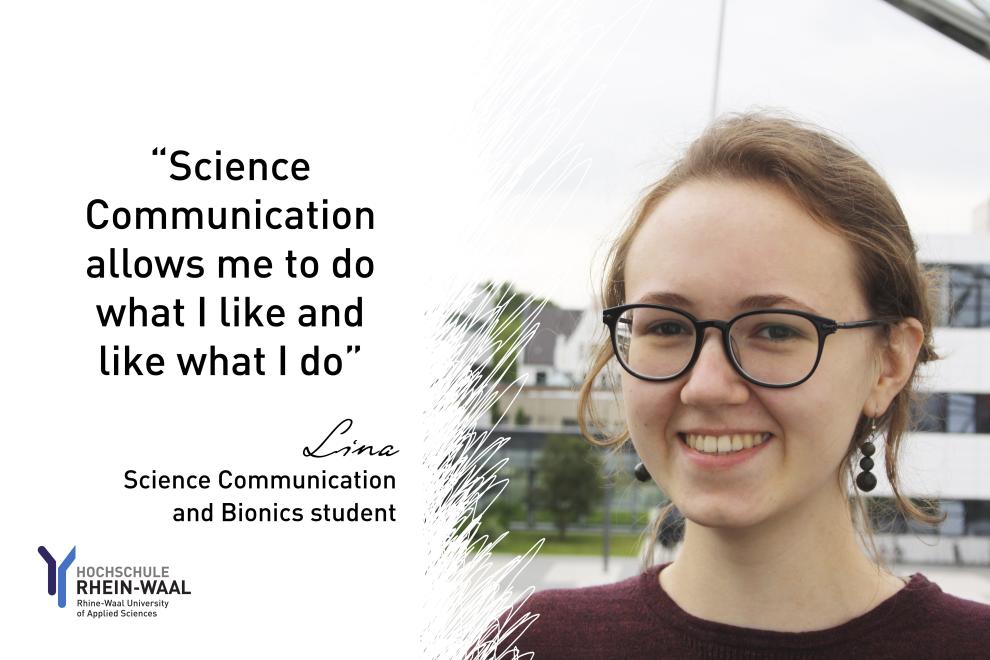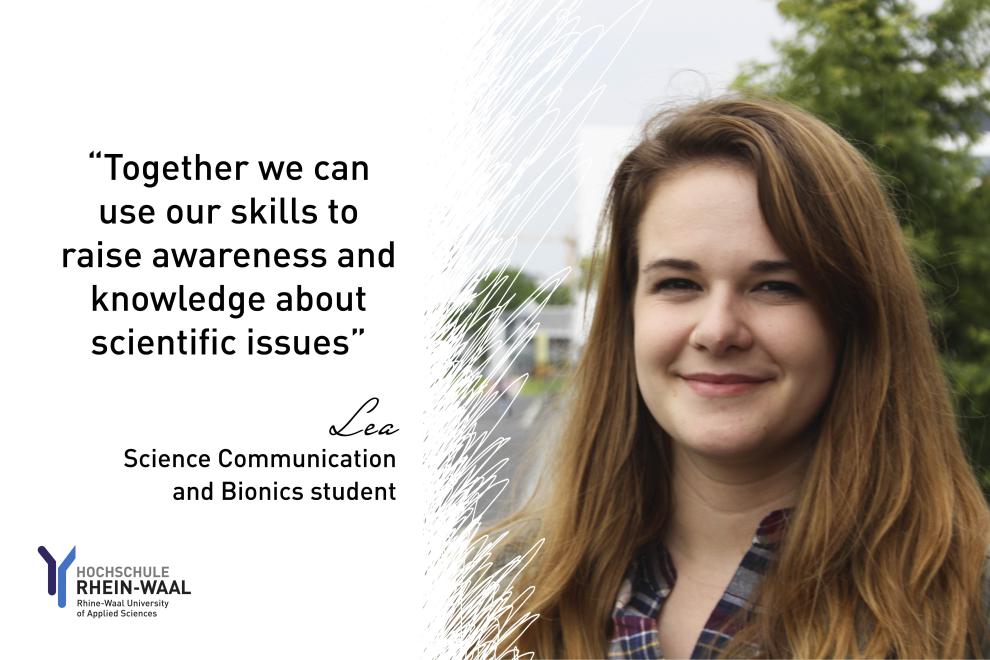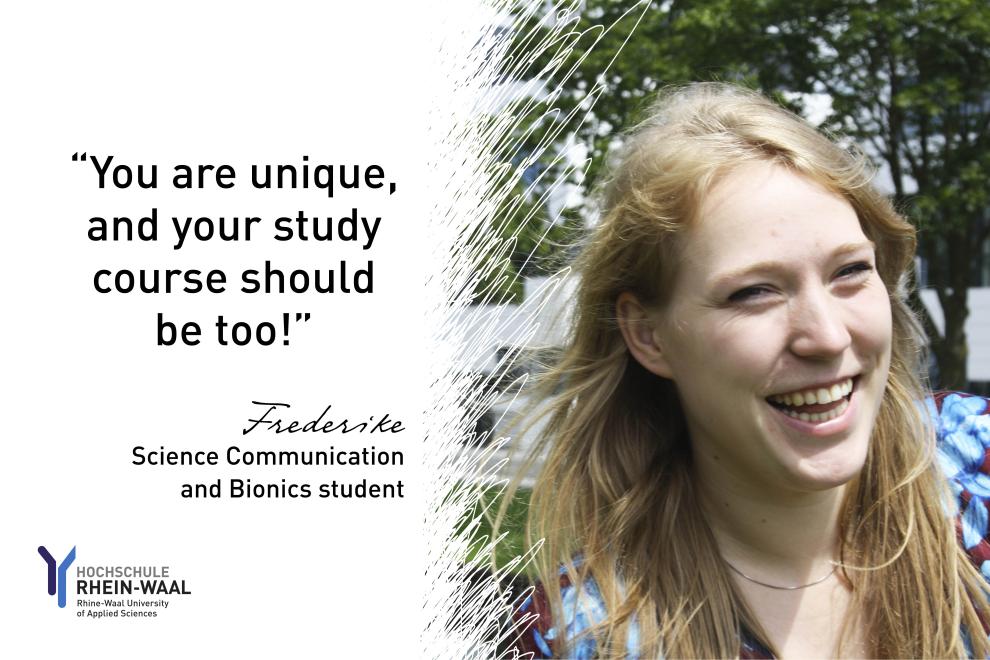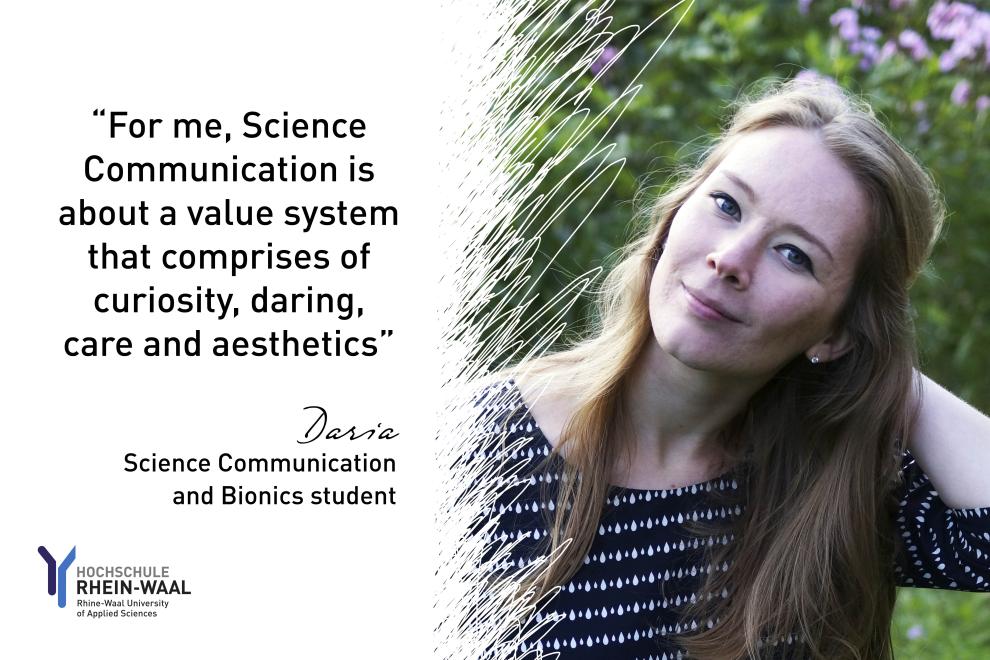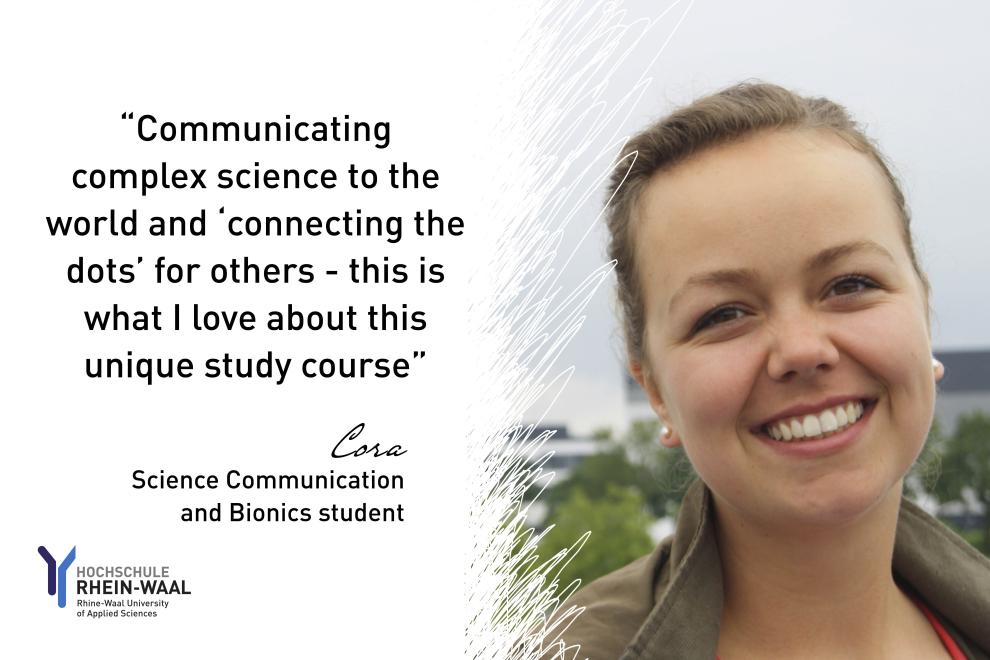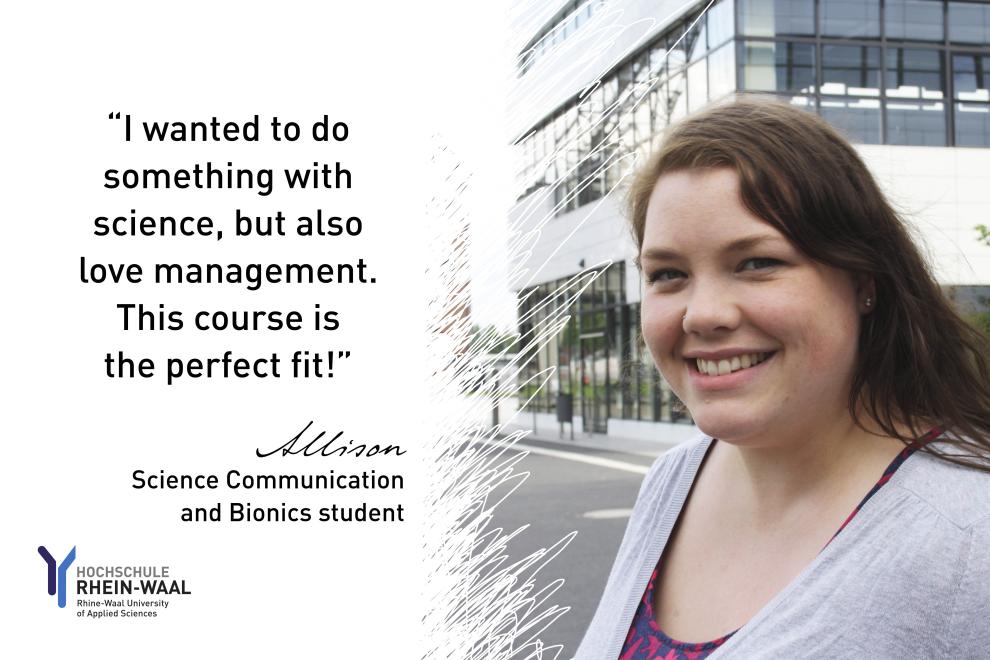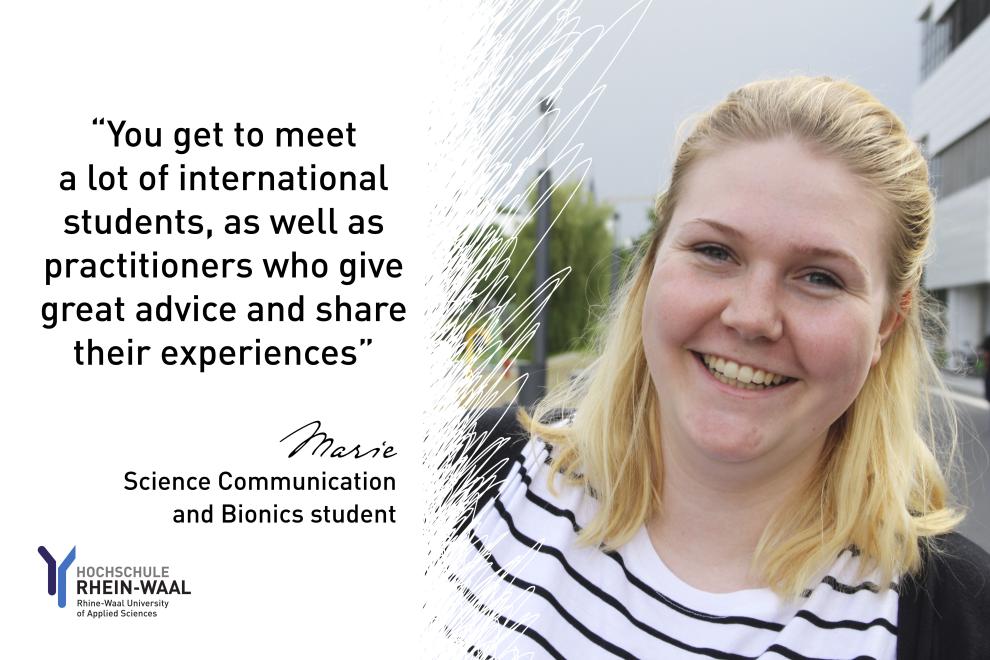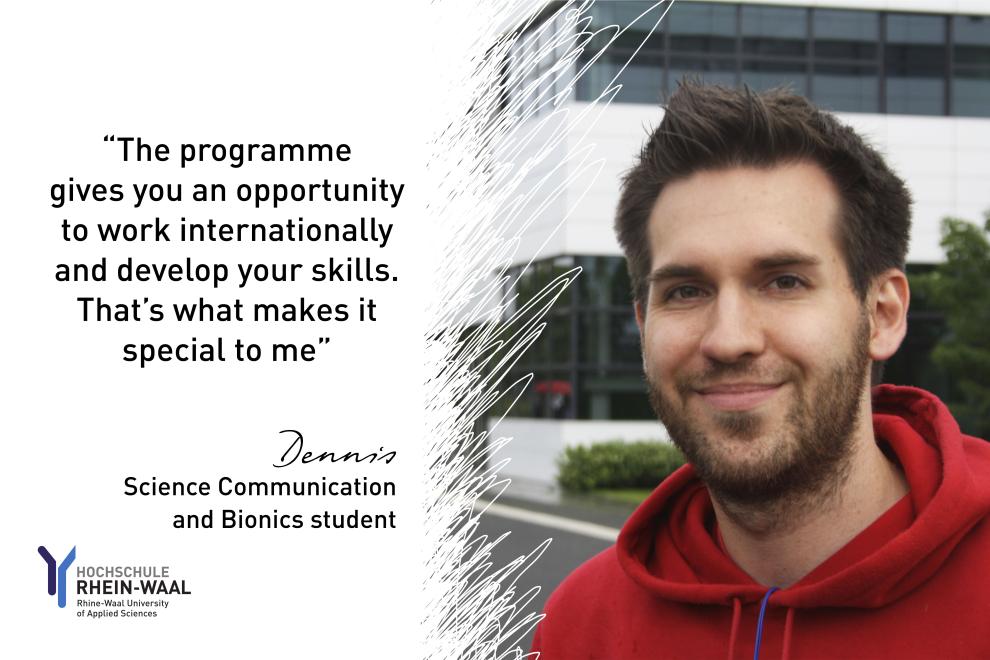Science Communication & Bionics*
Training for Change
Please note that it is no longer possible to apply for Science Communication and Bionics as the study programme will be closed within the next years.
Science communication is much more than communicating science, and at Rhine-Waal you will discover that our course is much more than studying for a degree.
You will explore science communication as an interaction between science and various stakeholders in politics, the economy and other publics. You will be part of a multi-cultural learning experience that reflects the ideals of the course and the backgrounds of its students.
Our programme focuses on linking communication practice with rigorous research methodologies. You will learn the tools of the trade of science and innovation journalism, public relations and marketing, as well as the political side of science, including risk communication, public affairs and regulation. You will develop key skills not just in communication but in data analysis, critical thinking, and innovative approaches in an ever-changing media landscape. In addition to that you will gain insight into various aspects of science, ranging from a solid introduction to fundamental sciences to engineering, and the interdisciplinary field of bionics.
For all this it is essential to foster a critical but evidence-based approach to media practice, science policy and even science itself. The need for such an approach is greater now than ever before in an age of “alternative facts” and “post truth” politics.
Companies and universities are also having to face the challenge of reconfiguring their old public relations activities into new public engagement strategies which promote Corporate Social Responsibility and bring publics into the research process.
This is the new world for which you will be uniquely prepared!
Course Structure
The degree programme takes seven half-year semesters; the first two of which present the basics of science and communication. In a later summer semester (usually the sixth or maybe fourth semester) students go out to a company, research institution or a partner university to gain experience and extend their horizons. After this the students deepen their understanding of the subject, finishing with a research thesis in their seventh semester.
Find more information in the Module Description in the section Quicklinks in the menu on the right.
All teaching during the course is in English, just as all the courses in our faculty, and there are no fees. Our students are offered special language training, be it in English, German or other languages.
Career Paths
The future Science Communicators we are training will be able to enter many careers in the following areas:
- Public relations departments in universities, extramural research institutes, government organisations or companies
- Communications offices in NGOs, unions and lobby groups
- Research communications in companies and for large research projects
- Editors and freelance journalists in specialised magazines, newspapers, for television, radio and online
- Consultants and communicators in PR and marketing agencies, particularly when the customer has a scientific or technical focus
- Press offices of charities and foundations sponsoring scientific works, cluster organisations, research councils and similar institutions
- Parliamentary science advice mechanisms, technology assessment or regulatory bodies
- Editors for scientific publishers
* The degree programmes offered are suitable for part-time study in accordance with §62a HG NRW.
Information
Place of study
Campus Kleve
Start date
Winter semester
Language
English
Duration of study
7 semesters of full-time study
Study model
Full-time studies
Degree awarded
Bachelor of Arts/Bachelor of Science
Internship
Mandatory 8-week preparatory internship/work placement. This must be completed no later than the 4th semester enrolment deadline.
Restricted admission
No
Questions about Science
Communication & Bionics B.Sc./B.A.:
Heads of the Degree Programme
Prof. Alexander Gerber
Phone: +49 (2821) 80673-641
technology-bionics@hochschule-rhein-waal.de
or
Prof. Dr. Alexander Struck
Phone: +49 (2821) 80673-616
technology-bionics@hochschule-rhein-waal.de
Questions about applying:
Student Advisory Service
Phone: +49 (2821) 80673-360

